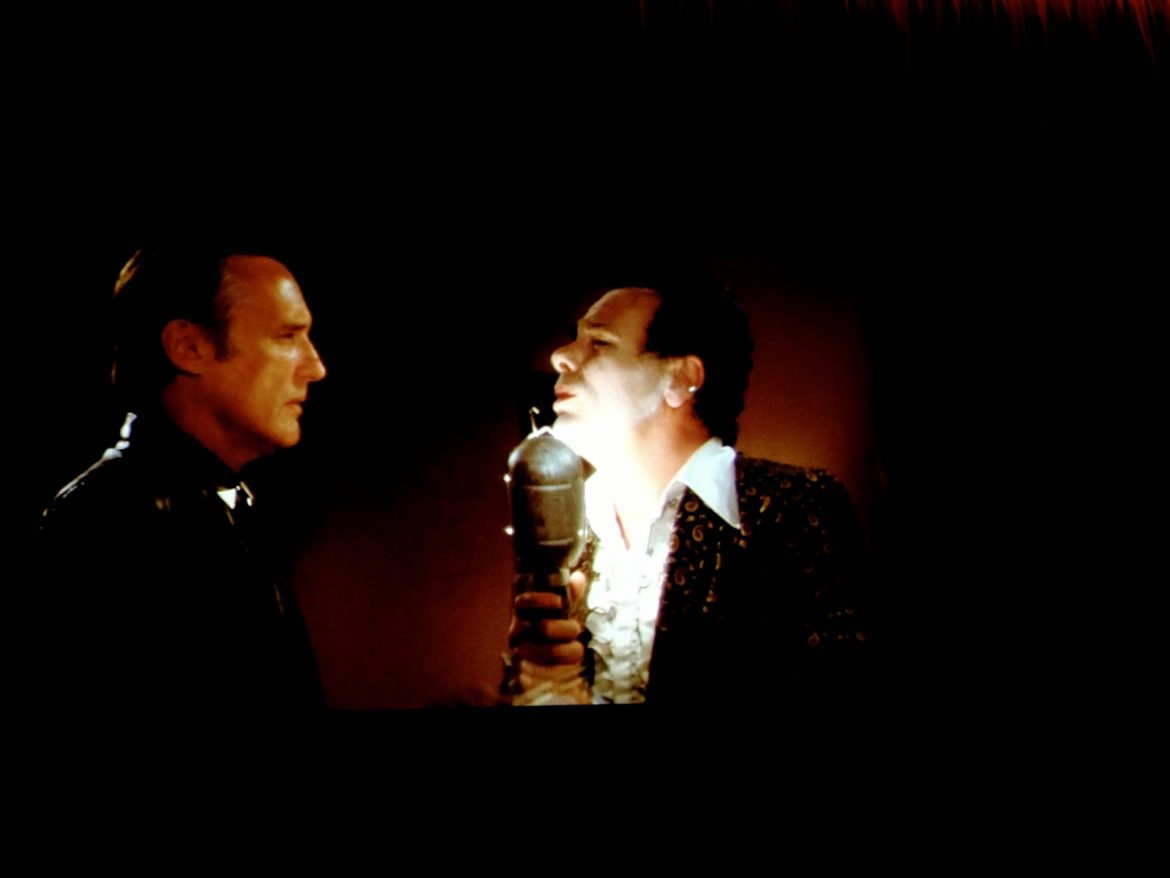It’s awards season, and there’s no shortage of commentary. I might chime in myself in a few weeks. (Spoilers: Boyhood, Ida, The Immigrant, Under The Skin, and Noah would win all the things if it were up to me, and Uma Thurman would get a best Supporting Actress nod for Nymphomaniac Vol 1 — it is not, it turns out, up to me.)
December 2014
“I like my bands in business suits, I watch them on TV
I’m working out ‘most everyday and watching what I eat
They tell me that it’s good for me, but I don’t even care
I know that it’s crazy
I know that it’s nowhere
But there is no denying that
It’s hip to be square!”
Warren Beatty’s 1981 passion project Reds is such a sprawling monster of a movie that it’s difficult to figure out how to approach it.
It’s a 195-minute epic he devoted years and years to bringing to the screen, about the American journalist John Reed (the only American buried at the Kremlin), the Russian Revolution, leftist sectarian politics in the U.S.
Luis Bunuel created a masterpiece in The Exterminating Angel, a savagely funny satire of bourgeois manners and the latent brutality they barely manage to conceal. Alternately, it might be a shameless rip-off of the 6th Season Buffy episode Older and Far Away which, presumably through some magic portal or Faustian bargain, Bunuel was able to view 40 years in advance.
From its arthouse title to its opening act, drawing heavily on Dario Argento’s color palette and prog-rock scores, The Strange Color of Your Body’s Tears announces itself as a meta-genre movie, aimed pretty squarely at fans of giallo and exploitation, though straddling a line into the uncanny just enough to please the David Lynch and Bunuel fans in the crowd.
Despite its huge budget, action movie trappings, and scriptural focus, there was never any real concern that American auteur Darren Aronofsky was going to make a boring sandal-clad, desert epic. The person behind Pi, Requiem for a Dream, The Fountain, The Wrestler, and Black Swan is seemingly incapable of approaching any material without transforming it into a “Darren Aronofsky project” in the process.
I won’t lie – I’ve always found Roy Orbison kind of creepy. And I say this as a fan.
I know “Oh, Pretty Woman” was supposed to make us feel warm and fuzzy in the Julia Roberts film of almost the same name, but it filled with me dread instead.
It was probably inevitable that Gillian Robespierre and Jenny Slate’s Obvious Child would be greeted as “the first abortion rom-com.” That’s like catnip to critics and headline-writers everywhere, and it’s true as far as it goes.
But having finally caught up to seeing the movie, I think it also obscures the bigger story: that Obvious Child is something of a miracle, a film that could’ve sabotaged itself at almost any step of the way but ended up being one of the most charming, funny, and welcome movies of the year, with one of the best lead performances.
The weird abstractions and head-scratching symbolism of Under The Skin probably account for its not-entirely enthusiastic reception, but they’re also its strongest feature.
Along with Scarlett Johansson’s fascinatingly cryptic and brave performance, which continues her recent (and welcome) foray into challenging roles that foreground and then subvert audience expectations, these imagistic themes demand engagement and interpretation, and nothing is made particularly easy.
Is there any living director who’s had a weirder career trajectory than David Cronenberg?
After carving out a very specific niche as a low-budget horror director fixated on technology and the body (Shivers, Rabid, The Brood), he moved on to bigger, more sci-fi oriented projects that maintained this focus (Videodrome, The Fly).










